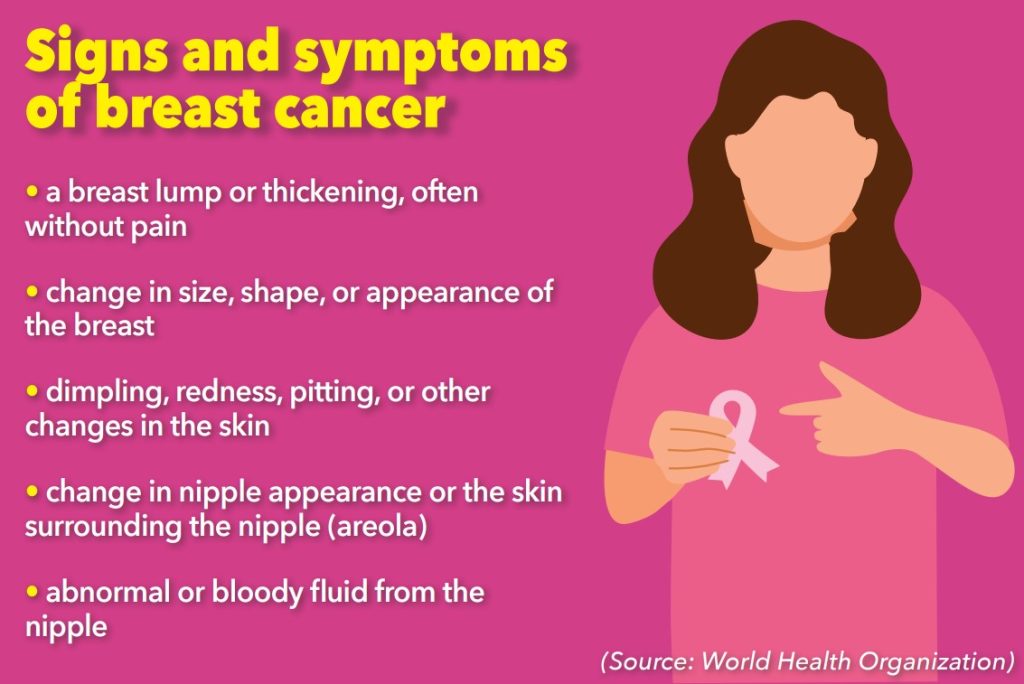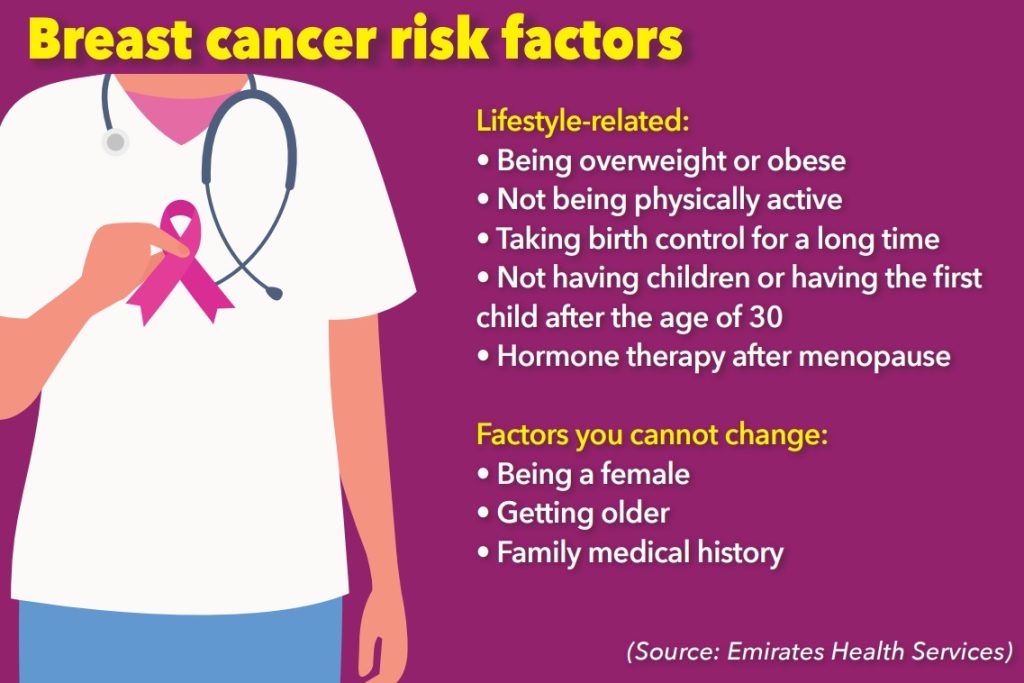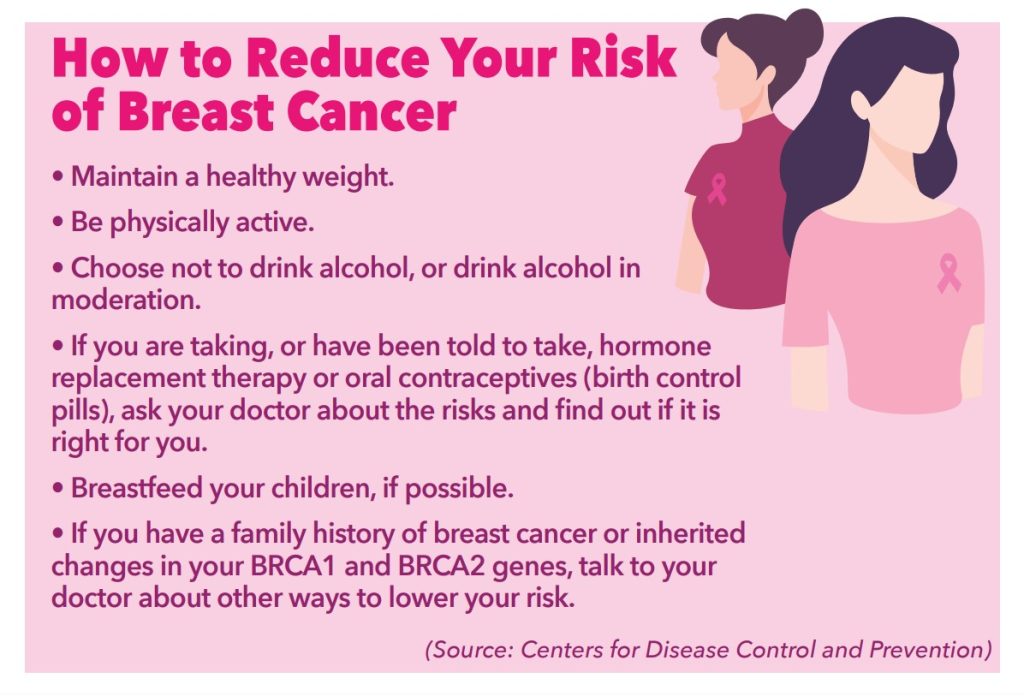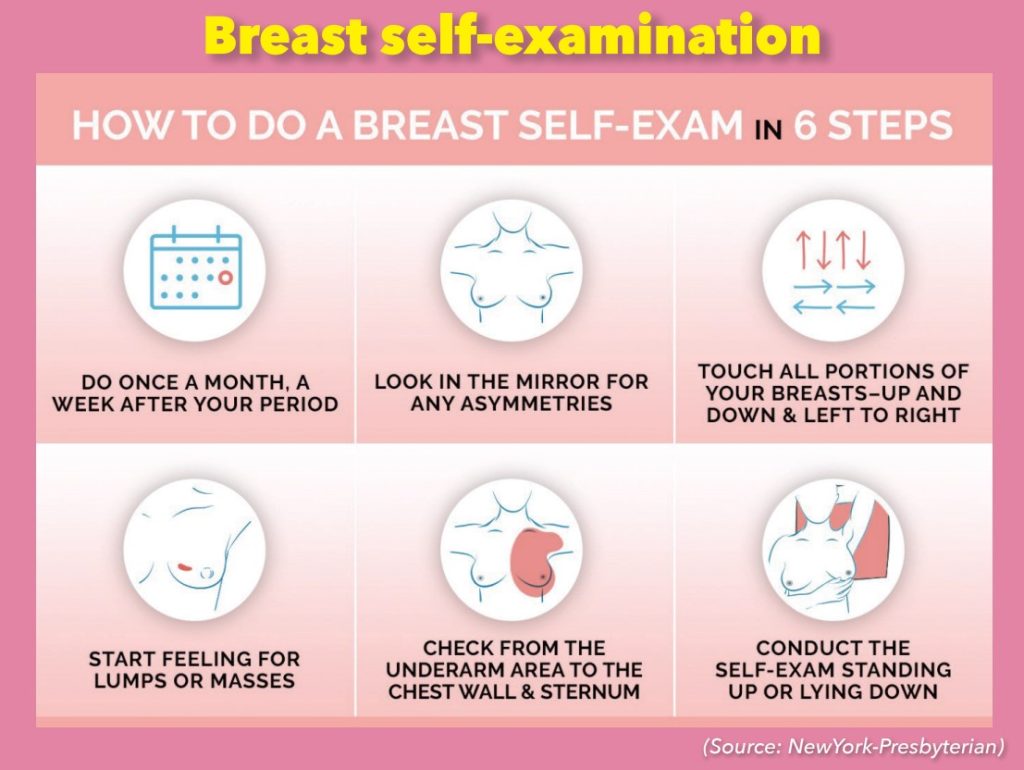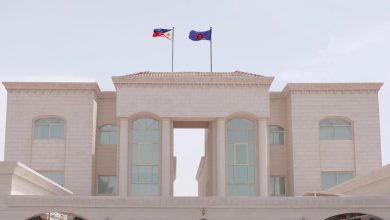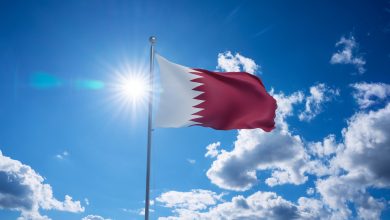In a vibrant display of support during October, the UAE is bathed in shades of pink, standing united in observance of Breast Cancer Awareness Month. Pink ribbons adorn mall posts, and pink campaigns flood your social media pages. As the world rallies behind this crucial cause, The Filipino Times echoes a compelling message to overseas Filipinos — the time to prioritize your health is now. Breast cancer, the most prevalent cancer in the world, often catches many off guard, leaving lives hanging in the balance.
A small bump in your breast, flaky skin, chest pain that comes and goes, or a small wound that you happened to scratch, and thought would eventually go away—often, it’s the smallest details that we try to disregard. But they are, after all, signs that we shouldn’t just neglect.
As you read this, every 29 seconds, a person gets diagnosed with breast cancer. In fact, according to the World Health Organization, there were 2.3 million women diagnosed with breast cancer and 685,000 deaths in 2020. And statistics show that there will be a minimum of 300,590 new cases expected in the United States alone this 2023.
In the UAE, approximately 4,600 new cancer cases are recorded every year. 3,500 of those cases are among expats, comprising approximately 30 percent Filipinos, as reported by Dr. Mohanad Diab, Consultant Medical Oncologist at Burjeel Abu Dhabi.
“We have a lot of ladies who come to us with a mass in the breast, and they are used to putting their mobile phones in their bras. In the same place where they put their phones, we usually find a cancer mass,” explained Dr. Diab in an interview with The Filipino Times (TFT).
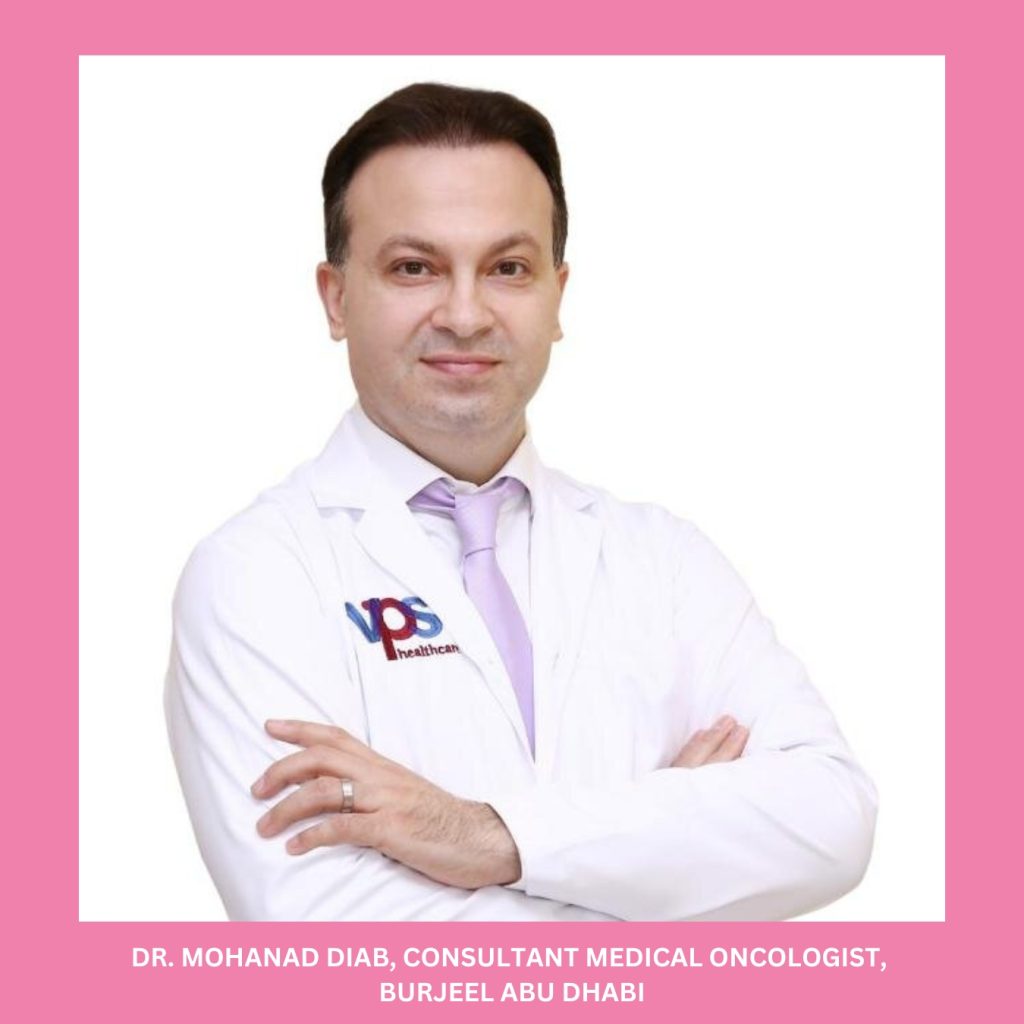
A wake-up call
Breast cancer manifests and presents itself in various ways, and the signs can differ from person to person. The signs and symptoms of breast cancer can be influenced by multiple factors, including the type of breast cancer, its stage, location, and individual variations in a person’s body.
For Filipina survivor Dr. Sharon Mendoza-Dreisbach, an Assistant Professor at Skyline University College in Sharjah and a breast cancer survivor, it was a sharp and intense pain that served as her wake-up call.
“Wala akong symptoms. Basta bigla na lang nakaramdam ako ng pain sa breast ko. ‘Yung pain na seconds lang pero mas masakit pa sa normal delivery ng baby. When it happened, pumunta na agad ako sa hospital,” shared Dr. Mendoza-Dreisbach.
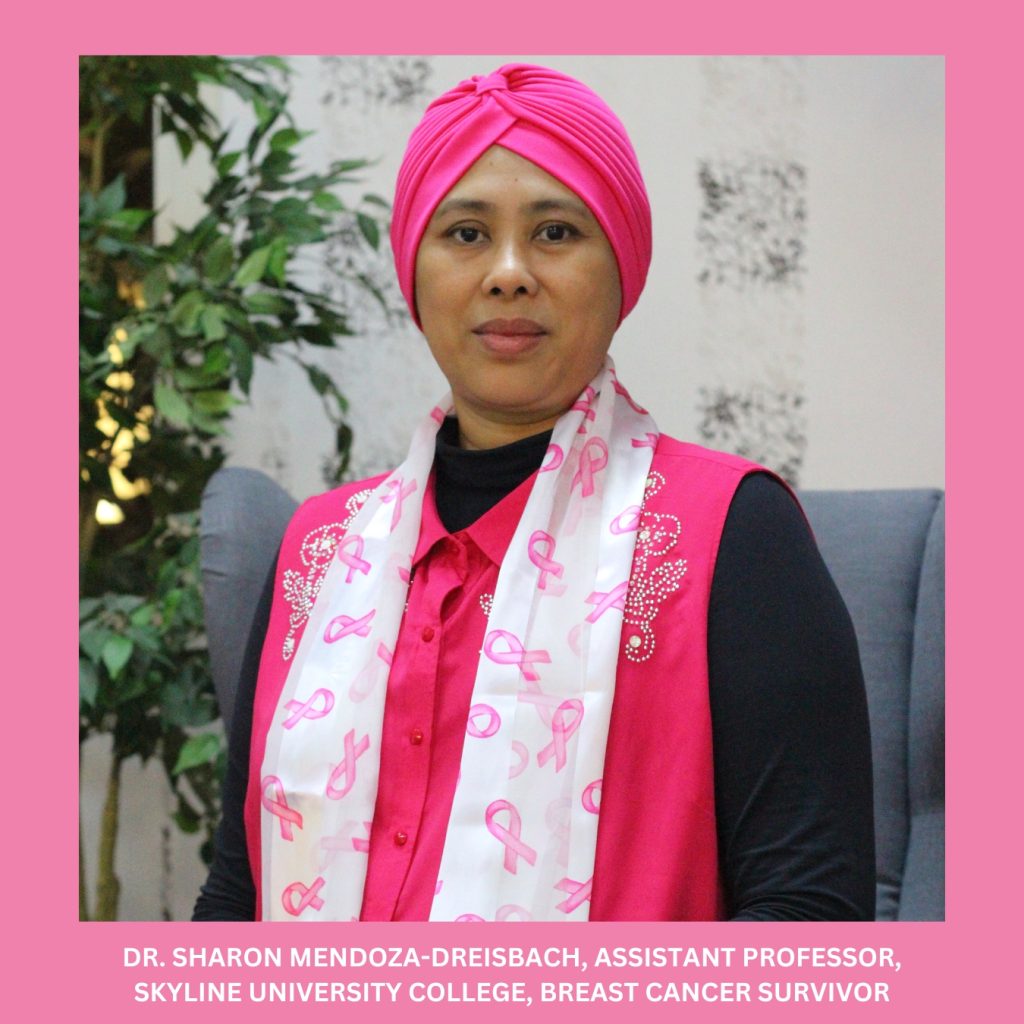
She has battled breast cancer for months before finally getting her second chance at life.
“In October 2015, I was diagnosed with stage 3 breast cancer. At the first hospital where I had my check-up, the surgeon told me, ‘go back to the Philippines and spend the remaining time of your life with your family’” she recalled.
Instead of getting disheartened, Dr. Mendoza-Dreisbach faced the war head-on — she decided to seek two more medical opinions and met doctors who eventually guided her in her journey to healing.
“After undergoing various tests, including a CT scan, MRI, and biopsy, in December 2015, I underwent my mastectomy surgery. From June to July, I had my chemotherapy. While undergoing chemotherapy, I took the BRCA test, and the results came out negative. I then underwent one month of radiation, and after eight months of my battle, on August 13, 2016, I was cancer-free,” she expressed.
Despite being cancer-free, Dr. Mendoza-Dreisbach religiously followed and completed the five-year management treatment plan, which has led her to better health and peace of mind.
“I am so blessed and grateful day-by-day that I am now an eight-year cancer survivor. God gave me a second life, and I believe that He wants me to live to tell my story that cancer does not equate to death,” she said.
Asking for help is not a crime
Early signs of breast cancer are often neglected, as they can present themselves in subtle ways. This often leads individuals to overlook or underestimate the potential seriousness of the symptoms.
However, it is crucial to emphasize that seeking help for breast cancer is not a crime, and one should never be ashamed of this disease. Denying the signs and delaying seeking medical assistance can have detrimental effects on the outcome of treatment and overall prognosis.
Jeanelyn “Ji” Jarder, a business owner and a breast cancer patient, shared with TFT how her battle with breast cancer started.
“It was July of last year when I noticed a small lump on my upper left breast. I thought it was only a muscle sprain since we were in the middle of moving out of our place. I didn’t have it checked until late October, only to find out that it had gotten bigger,” she shared.
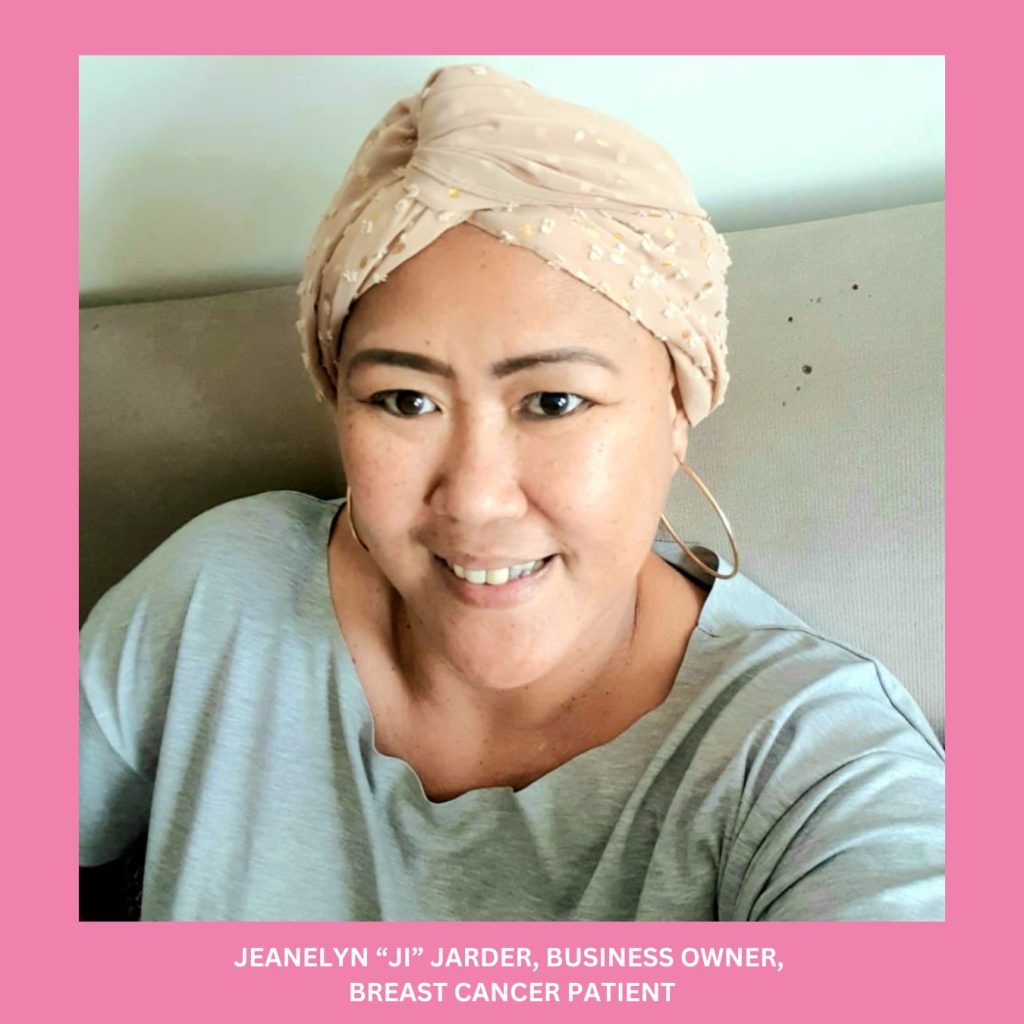
“After a series of blood tests, ultrasound, and mammogram, we were redirected to see an Oncologist to determine what I have. After a month or so, it was confirmed to us that I had breast cancer,” she added.
That ordinary day became a big turning point in her life which made her question everything and challenged her to be ready emotionally, spiritually, financially, and physically. Most importantly, it taught her that she is not alone in this battle.
“It was such a big challenge because there were a lot of questions like, why me? I isolated myself as it was difficult to accept that I was getting this life-threatening disease. But eventually, I managed to get out of that negative mindset and change my perspective. I taught myself to accept my fate fully and wholeheartedly, and to make things easier, focusing on my goal to get better,” she said.
“Having this disease has been a life-changing journey for me. It changed my perspective in life and it taught me that asking for help is not a crime. Most importantly, it taught me that cancer is not the end of the line,” she added.
Although healing should start within ourselves, it is important to remember that there are compassionate people—especially fellow Filipinos—who are always willing to extend a helping hand, sometimes even without us asking for it.
The Filipino community has played a vital role in Jarder’s journey, where individuals—some even complete strangers—supported her financially.
“We have good friends from the Filipino community who have been supporting our small food business. And it helped me go through with my laboratory tests, check-ups, and the chemo. My six sessions have been completed with the help of friends and people we don’t know from different groups in which I am grateful for,” Jarder said.
Using her undying hope as armor and her loved ones as a shield, she started her own food business to support herself with the treatments she needed to overcome cancer.
“I started to sell food, but of course with the help of a friend in the Filipino Community to secure a food license under her company. Even at the time when I was undergoing chemotherapy, I still managed to cook, sell, and even deliver with my husband. This was the only way for us to survive,” she stated.
The same “bayanihan spirit” was experienced by Dr. Mendoza-Dreisbach as various organizations in the UAE played a vital role in paying for her treatments.
“There are several organizations in the UAE who supported me financially. One charitable institution helped me pay for the last three sessions of my chemotherapy, which cost AED18,000 per session, as well as other hospital fees,” she said.
The best time to beat cancer is now
In the face of breast cancer, or before even having to face it, every passing day matters. Early detection and immediate action offer the strongest fighting chance. The decision to act now, to seek treatment, to confront the battle head-on—holds the power to alter the course of the fight against cancer.
The journey of Dr. Dreisbach and Jarder is proof that being aware of breast cancer and seeking help early has a positive effect on overcoming this disease.
Dr. Diab explains that it’s very important to raise awareness because the early detection of this disease will lead to accurate treatment.
“Doing a mammogram for ladies, even before they feel anything, is very important because the mammogram can detect any lesion or any mass or cancer in the breast, two years before they can feel it,” he explained.
According to the American Cancer Society, breast cancer is sometimes found after symptoms appear, but many women with breast cancer have no symptoms. This is why regular breast cancer screening is so important, as early detection is your best chance to find cancer in the early stages. When breast cancer is detected early, and hasn’t spread, the five-year relative survival rate is 99 percent.
In the UAE, a lineup of initiatives is underway to raise awareness of breast cancer. These include:
- Friends Of Cancer Patients (FOCP), a non-profit organization in Sharjah, has launched its ‘Pink October’ campaign, led by its breast cancer awareness and early detection initiative, the Pink Caravan, and feature more than 90 events and activations across the nation throughout October. This will offer free mammograms to female residents of the UAE who are over 40, and will provide clinical breast examinations to all women aged 20 years and above who walk in.
- Deerfields Mall, in collaboration with Burjeel Hospital, is supporting Breast Cancer Awareness Month by installing a mobile unit in the garden area which will offer free breast cancer screening. This event will run from October 13 to October 15, from 6pm to 10pm in the Garden Area of Deerfields Mall.
- Umm Al Emarat Park in Abu Dhabi will host a fitness and wellness program that highlights the importance of early detection and screening and living a healthy balanced lifestyle, while supporting those courageously fighting breast cancer.
- A Pink October Walkathon on October 20 and 21, starting at 5pm, is also set to be held at Umm Al Emarat Park. On both days, SEHA will also host a Breast Cancer Awareness booth which will offer free mammogram checkups opposite the Park’s entrance from 4pm to 10pm.
- A Pink Mobile Clinic will be set up at Hudayriyat Island, Abu Dhabi on October 14 and 21, which will offer complimentary breast cancer screening in partnership with SEHA.
Together with the rest of the world, let us learn to practice the saying “prevention is better than cure” in our lives. These initiatives are not meant to cause panic regarding the risk of breast cancer, but to serve as a reminder and a call to action.
Breast Cancer Awareness Month encourages us to take proactive steps, prioritize our well-being, and be mindful of our health. By embracing preventative measures and early detection methods, we empower ourselves to make informed choices for a healthier future.
